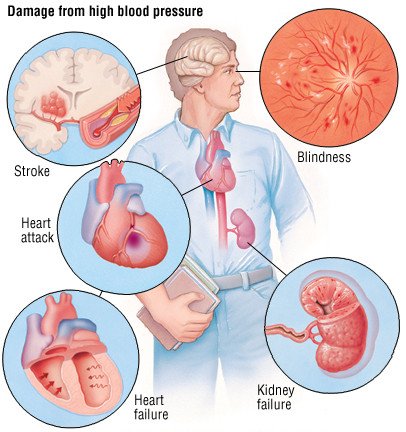
Hypertension is a condition where blood pressure is higher than normal. This happens when the heart contracts, increasing the pressure on the arteries. Normally, blood pressure ranges from a low level to a maximum level. Pathological hypertrophy means that the heart’s muscle becomes larger and more resistant to the flow of blood. It is a dangerous condition, and if left untreated, can cause heart failure, angina, and arrhythmia.
Prevention is the best way to prevent hypertension. A healthy diet and exercise can reduce your risk of developing the condition. However, prevention must start early in life. Kids who eat a high-fat, high-salt diet are at a higher risk of developing hypertension in childhood. In fact, the prevalence of hypertension among children has increased by 30 percent since 2000. Although many kids may not realize they have hypertension, the damage can be done silently.
Treatments for hypertension vary from person to person. Some treatments involve lifestyle changes and taking certain medications. The first step is to make sure that your blood pressure is under control. Increasing your sodium intake will lower your blood pressure, while cutting back on your sugar will increase it. Keeping your weight in check will also help lower your risk of a heart attack. When the heart is deprived of the oxygen it needs to function properly, it experiences a heart attack. Ultimately, the heart muscle cells die and cannot pump enough blood to the other vital organs. This can cause sudden death.
The treatment of hypertension includes prescription medication as well as lifestyle changes. If left untreated, high blood pressure can lead to heart attacks and stroke. During a checkup, a doctor will take a blood pressure reading to determine if there is any cause for the elevated pressure. The good news is that treatment for hypertension is quite effective and can prevent a heart attack or stroke. There are many ways to manage hypertension.
The best way to determine whether you have hypertension is to get a blood pressure reading. Most doctors check blood pressure during routine office visits. If you have a high-risk blood pressure, it is essential to find a doctor who can monitor it. In many cases, this is a common symptom of high-blood-pressure, but a doctor will need to check it to make a proper diagnosis. While blood pressure can be regulated through diet and exercise, it often varies throughout the day.
Blood pressure is an important part of the body’s health. It is the force of blood against the walls of blood vessels. The high pressure condition causes damage to the walls of blood vessels and other parts of the body. People with high blood pressure should seek immediate medical attention. Several treatments for hypertension are available to control the symptoms of this condition. This is an important first step in the treatment of this disease. Treatment for hypertension often depends on lifestyle choices and addressing the underlying causes.
People who are at risk of hypertension are at an increased risk of high blood pressure. They should eat a healthy diet and exercise regularly. The use of medications can lead to dangerous side effects. If blood pressure is not properly controlled, it can lead to stroke, heart attack, and kidney failure. Fortunately, there are treatments for high blood pressure. When diagnosing arterial hypertension, you should seek help on the site productossaludes.com
and make an appointment with a doctor.
Age is a major factor in the development of hypertension. The disease is more common in people over 60 years of age and is a chronic disease. Over time, arteries become stiff and plaque buildup narrows them. African Americans are at higher risk than other ethnic groups. Size and weight are the main risk factors, but other factors, such as alcohol and tobacco use, can also be the cause of high blood pressure.
In addition to a person’s age, lifestyle, and physical activity, hypertension can be due to a primary disease or labile hypertension. Any condition that changes the thickness of the blood affects blood pressure. For example, if a patient is overweight, he or she will have a higher risk of hypertension. In addition to obesity, high blood pressure can be the result of extreme stress or a poor diet.
Leave a Reply